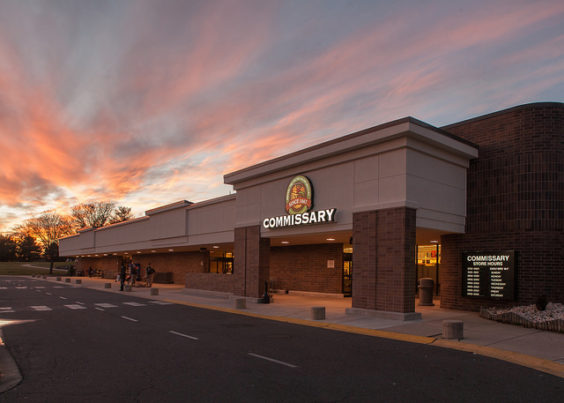
(December 22 update: The article that follows is about the January 2018 government shutdown. The most recent shutdown that began on December 22 will not affect military commissaries. The Defense Department is already fully funded through the end of the fiscal year next September, so commissaries will remain fully staffed and will be open regular holiday hours.)
(January 22 update: Now that the shutdown is over, all commissaries will remain open. Most affected commissaries weren’t scheduled to close until the end of the day on Wednesday, so none were actually shuttered during the three-day shutdown.)
Many government services will shut down, federal workers will be furloughed – and millions of military families won’t be able to go grocery shopping on base.
The federal government officially ran out of money when the clock struck midnight early this morning, after the Senate failed to agree on a stopgap funding measure. That means, for the first time in more than four years, the U.S. government is closed for business.
Essential employees, including members of the military, will continue to go to work, and essential services will continue. But government-run grocery stores in the U.S. aren’t among the services that are considered essential.
Most stateside commissary stores will begin following “an orderly shutdown”, staying open just long enough to sell off perishables and safeguard equipment and facilities. Civilian commissary employees won’t get paid during a government shutdown, so most will no longer be reporting to work.
Some will, though. All overseas commissaries, including two stores in Guam and one in Puerto Rico, will remain open, as will a handful of stateside stores in remote locations where there are no other nearby options for food:
- Bridgeport MCMWTC, California
- Fort Irwin, California
- Kodiak, Alaska
- Fort Greely, Alaska
- Dugway PG, Utah
The rest of the Defense Commissary Agency’s stores are expected to close in the coming days, and remain closed for the duration of the shutdown. The Defense Department is directing shoppers to visit the Commissary website or social media pages for details about the “(temporarily) going out of business” sales, but since those sites are also operated by civilian employees, they’re expected to go silent at some point as well.
So this means military families who enjoy government-subsidized discounts on their groceries – a perk offered in exchange for their service to the country – will have to do their shopping off base and pay off-base prices instead.
Military exchanges, meanwhile, will remain open worldwide. And while they mostly don’t carry grocery items, many exchanges are said to be ordering essential items like milk, bread and diapers for their customers’ convenience.
The last time there was a government shutdown, in 2013, commissaries were closed for just about a week. The shutdown itself lasted 16 days, but commissary shoppers got a reprieve after the Pentagon decided civilian employees could return to work.
That shutdown came at a particularly difficult time for the commissary system, as budget hawks were questioning its very existence. If military families managed to do without their commissaries for a week, couldn’t they do without them forever? Various proposals being considered around the time of the last shutdown would have scaled back or shut down stateside commissaries, or at least reduced or eliminated the price subsidies.
That kind of talk died down after a time. But the commissary benefit is always a meaty target for those looking to trim money from the federal budget, so the threat for commissary shoppers never quite goes away.
But today, the federal government has more important things to worry about than grocery stores. As for commissary shoppers, you might want to make plans to get your perishables now – while you still can. Once your commissary closes down, the way things are going in Washington, there’s no telling when it might be open for business again.
(Note: an earlier version of this story suggested, though did not state, that “all” government offices and national parks would close, which is not the case. Many government offices and services will be affected, and while most visitor services in national parks will not be available, many – though not all – parks and monuments are expected to remain open.)
Image source: Defense Commissary Agency











Government offices and National Parks will ALL be open. You are posting false information.